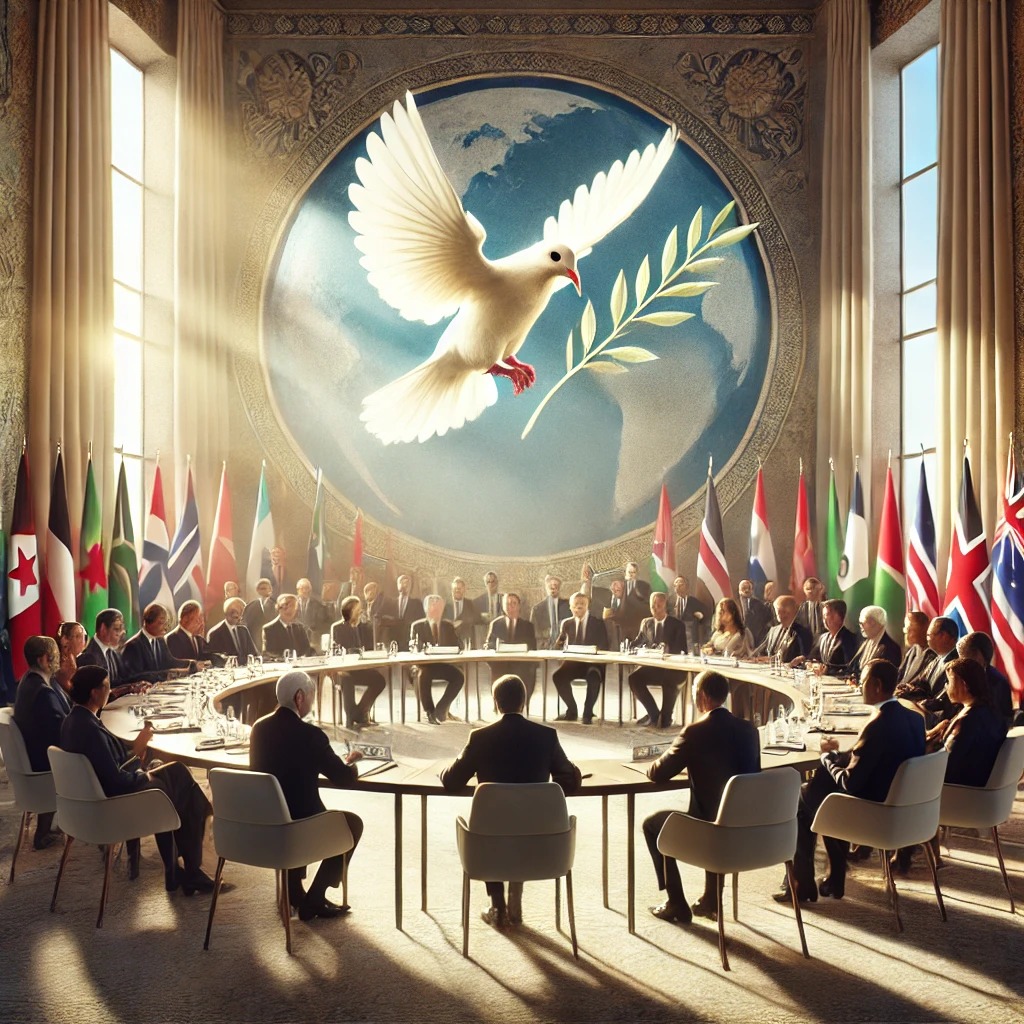Peace, Not Sides, Should Be Keir Starmer’s Standing on the Iran-Israel Conflict

The escalating conflict between Israel and Hezbollah, with Iran’s shadow looming large, presents a formidable challenge for the UK. Prime Minister Keir Starmer’s response must be carefully calibrated, not a blind support, balancing historical alliances with a commitment to international law, human rights, and ultimately, lasting peace. While acknowledging the complex history and the UK’s long standing relationship with Israel, a truly effective strategy requires a nuanced approach that prioritises de-escalation, protection of civilian lives, and a firm commitment to finding a just and sustainable resolution. Simply taking sides, however tempting, risks perpetuating the cycle of violence and undermining the UK’s potential as a credible mediator.

“Peace, not sides,” must be the guiding principle for Starmer’s government. This means moving beyond traditional alliances and embracing a more even-handed approach, one that acknowledges the legitimate security concerns of all parties while unequivocally condemning violence against civilians. It requires a clear-eyed assessment of the power dynamics at play and a willingness to push for policies that prioritise human rights and encourage all actors, particularly those with greater resources, to take responsibility for de-escalation.
This principled stance translates into concrete actions:
1. Championing a UN Security Council Resolution for an immediate ceasefire: The UK should leverage its position as a permanent member of the Security Council to push for a resolution that demands an immediate and unconditional cessation of hostilities. This resolution must go beyond simply calling for a ceasefire; it should also explicitly address the protection of civilians, condemn indiscriminate attacks on civilian infrastructure, and guarantee unimpeded humanitarian access to all affected populations.
2. Demanding accountability for violations of international humanitarian law: The UK should actively support investigations into alleged war crimes and human rights abuses committed by all parties. This includes supporting the work of the International Criminal Court and other relevant international bodies. Impartial investigations and accountability are essential for deterring future atrocities and building a foundation for lasting peace.
3. Leading a global effort to rebuild and rehabilitate Gaza: The Gaza Strip has been repeatedly devastated by conflict, its infrastructure crippled and its population facing dire humanitarian conditions. The UK should take a leading role in mobilising international support for a comprehensive reconstruction and rehabilitation effort. This includes not only rebuilding physical infrastructure, such as hospitals, schools, and housing, but also supporting the long-term recovery of the Gazan economy and empowering local communities.
4. Facilitating inclusive dialogue through back channels: Recognising the deep-seated mistrust and the political complexities of the conflict, formal negotiations may prove challenging in the immediate aftermath of violence. The UK, with its extensive diplomatic network and experience in conflict resolution, can play a crucial role in facilitating quiet diplomacy and establishing back channels for communication between all parties, including representatives of groups currently excluded from formal peace processes. These back channels can foster dialogue, build confidence, and explore avenues for future negotiations.
5. Conditioning future aid and arms sales on demonstrable progress towards peace: The UK can leverage its relationships with regional actors by making future aid and arms sales contingent on tangible steps towards de-escalation, respect for human rights, and a genuine commitment to engaging in meaningful peace negotiations. This will provide a powerful incentive for all parties to prioritise peaceful resolution over continued conflict.
6. Addressing the root causes of the conflict: Any lasting solution must address the underlying issues that fuel the conflict, including the unresolved Palestinian question. The UK should reaffirm its commitment to a two-state solution based on the 1967 borders and actively support international efforts to revive the peace process. This requires addressing the issues of settlements, borders, security, and the status of Jerusalem.
By pursuing these concrete actions, Starmer’s government can demonstrate genuine leadership and a commitment to building a more peaceful and just future for the region. This approach, grounded in international law, humanitarian principles, and a recognition of the interconnectedness of regional security, is not only morally right but also strategically sound. It offers a path towards breaking the cycle of violence and achieving a sustainable peace that benefits all parties involved. A firm stance on “peace, not sides,” coupled with proactive diplomacy and a commitment to accountability, represents the best hope for a future free from conflict in the Middle East.





